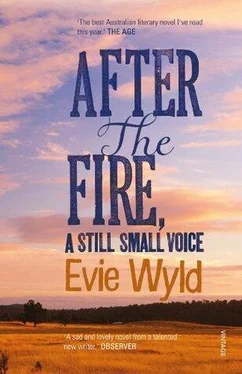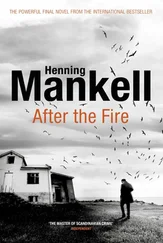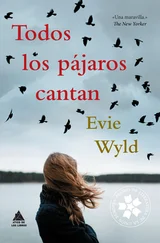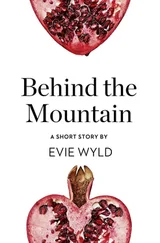Frank drove right off the dirt road to the shack and down to his beach, feeling full and heavy. The small bay was a mix of rock and brick clay, run off from the last floods marbling the sand with mud. No footprints, no tyre tracks on the road down. The smell that prickled the insides of his nostrils was hot salt fish and oranges, and the sound was of a long exhale. He unpeeled himself from his shirt and shorts, and stepped out of his pants, happy to be free of the wet heat of them. He caught them on his foot and flung them up into the air.
He clambered ape-like to a high rock and looked down at his beach. The bream hole, his mother’s spot, was full of white salt foam. Standing there cooking the first inch of his own flesh, he squinted at the glare that came off the sea. It was ugly somehow, the sand a bit too deep in colour, the water a fleck too grey and sharky, imperfect. He stood like Peter Pan; hips thrust forward, naked apart from his old hat thumbed to the back of his head, fists on his waist, smiling like a split melon because all of a sudden things felt good.
‘Mine,’ he said out loud so that his voice bounced off the rocks. This is what it is to have land, he thought, his eyes following the line of the shore. He did a small low jump and ran, his hat flying off and settling somewhere down the beach, feeling the enthusiastic sock of his dick bouncing from side to side as he ran for the water. He dived into the base of the first small wave that came in, thinking only as he hit the water face first that it would have been a good idea to check for rocks. But he came up in one solid lump, making a clean ‘boc’ sound with his mouth. It was colder than the water he was used to swimming in, there was a tightness in his chest, which was good. He floated on his back, feeling like a fat otter, letting the salt water into his mouth, to clean right inside him, where city dust lay on the tops of his lungs. The currents were strong, and he kept half an eye on the shore while he grabbed up handfuls of sand and scrubbed himself raw. When he was pink and shining, the sky was a low purple and the heat had gone out of it. He took a wave all the way into the sand, the foam bubbling at his chest.
With the sea still streaming from his ears, he found his hat and dragged his shorts on to wet legs while sandflies and mosquitoes bit and blew by him. He ignored them and poked around in a rock pool, squatting by its side. There used to be abalone on the rocks, but not now. Fingernails of crab shell floated among the weed, an empty hairy leg — octopus dinners. His insides garbled with the thought of clean fresh food. Sea animals would fill him up with goodness, push out the jam rolls and meat pies of the city.
‘Yars yars yars,’ he said into the rock pool, stirring up sand with a stick. The sky rolled in the moon and then it was night time.
He woke in the dark with the feeling that there had been some noise or movement in the shack, like a soundless bird had flown in one window and out the other ruffling the air as it went. He listened for feathers landing on the floor. Past the frogs and insects, the drill of night things, he heard it again. The night sounds dipped and let the noise through — a faraway cry, something prehistoric like the noise of a pterodactyl in an old plasticine movie. His ears became full of the sound of his own blood and he ticked off in his head all the explanations. ‘Bird’ was what he arrived at. Some kind of bird was what the Creeping Jesus was. Owl. Jabiru. Cockatoo. He listened past his own breathing, past his own blood, then past the outside noise, banana leaves on corrugated iron, past the scrubbing of the gum trees in the little wind, he listened so that his body went stiff, though he didn’t dare clench his fists for the noise it might make.
Again, like wind dropping, the nightbirds tucked their heads under their wings and the sound echoed from far away in the bush, a siren, a vowel noise that was long and thin, and when it reached its peak it broke and turned into a low howl, tailing off like a sad question. He kept his eyes open until they wouldn’t any more and when he slept there was nothing.
At dawn something scrambled across his feet in the snub end of the sleeping bag and he fell on the floor kicking the air furiously. He didn’t find a spider or a mouse, but a pair of balled-up women’s toe socks that had been hidden at the bottom of the bag. He held them in both hands, resisting the urge to bring them up to his face. Those shapes, those spaces between her toes. He went outside to the burnt-out fire, holding the socks between his index finger and thumb now, like they might sting. He put them in the ashes of the mattresses, then fossicked around for a piece of wood to put on top of them and hide them from view. He used a few twigs to make a pyramid over the socks and lit them, watching until they were on fire.
The sky was pale and the morning dew had already burnt off. A troop of magpies gurgled in the blue gums and he could smell hot eucalyptus and salt water. From the borders of the cane came a crumping noise as something large sloped off towards the trees. A lost cow, maybe, or a feral sheep down from the hills. He threw more wood on top of the socks and made a billyful of tea to start the morning off.
Before the iron roof turned to a griddle he was up on a ladder, patching up the rust-bitten roof. Even in the first sheets of sun the metal began to expand and shift, creaking and popping in the heat, and he couldn’t rest his hand in one place for too long, feeling that he would leave the skin behind. On the roof were all kinds of uglies: leaf insects, their tails up and ready to strike, spiders — redbacks, huntsmen, fat black-bodied ones and hard little yellow jumpers. A whitetail nestled in a rusted pipe, which he gingerly rolled off the roof, then watched as the bugger tottered away after the pipe hit the ground. The banana tree nodded softly, making a sound like rain on the roof. It was a good sound. He filled his lungs with hot air and stood upright to piss in the direction he had thrown the spider. He rolled an orange between his palms, softening it, then bit into it with his front teeth and sucked it hard so that stars came to his eyes. He looked at the cane flowing softly in the breeze that never seemed to reach him, saw the tops of three or four tractor sheds like capsized boats above the level of the cane. He took a strong back swing and hurled the sucked-out orange in the direction of one of the roofs, saw it swallowed up and was surprised for a second that there were no ripples.
When he turned round and saw the face watching him from the edge of the clearing he had to crouch down, his heart fat and loud, to stop from falling over. The person slipped out of the cane and strode forward, and Frank clutched his hammer tightly. The man walked quickly and lightly towards the shack, one hand up in what was possibly a friendly gesture. He let his hammer go and stood up. ‘A-roo, a-roo, a-roo!’ called the man, jogging a bit now to come and stand at the bottom of the ladder.
‘Hello,’ said Frank and the man beamed with brilliant white teeth. He had the look of a young boy dropped into a grown man’s body. The skin of his face was salt-rubbed, his eyes red and bright from the sun.
He squinted up at Frank ‘How is it?’ he asked, presenting a bronzed hand so that Frank had to come down the ladder and shake it. ‘Bob Haydon — heard a noise someone was moving in around here.’
Frank took the hand which was cool and big. ‘Frank Collard,’ he said in what he hoped was a friendly tone. Unable to think of what else to say he added, ‘I’ve moved in.’
‘Can see that, mate!’ Bob talked in a shouty way, like a welcoming dog. ‘Sorry for sneaking up on you, was having a bit of a ramble and wondered what was going on — sometimes you get kids around here, you know, up to no good and that sort of thing.’
Читать дальше












